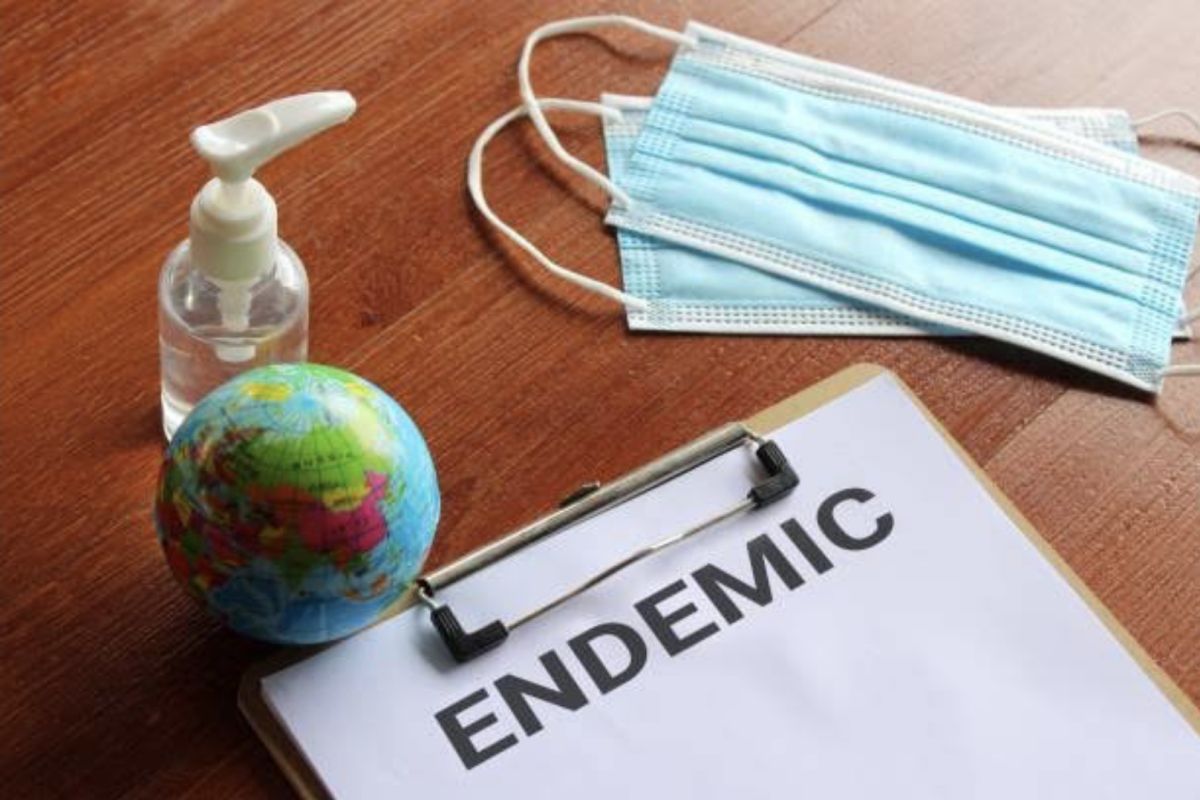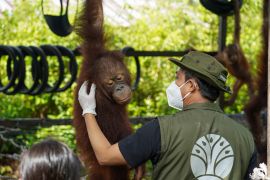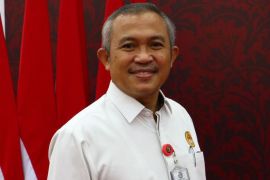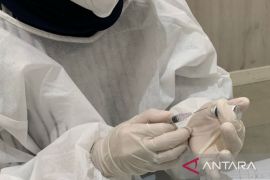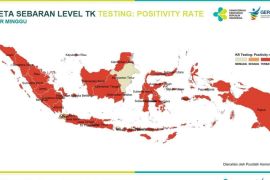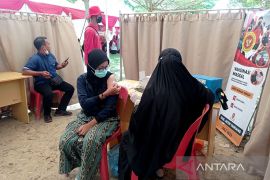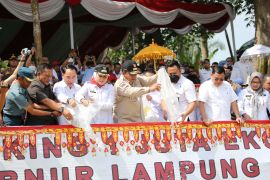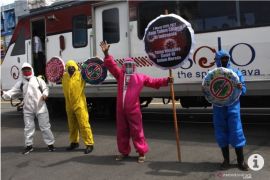The transition to the endemic phase was achieved through the joint work of the government and the community in handling the impacts of the pandemic, including health, social, and economic, and supporting the country in returning to normal conditions.
The controlled COVID-19 situation in Indonesia has been marked by the issuance of Presidential Decree Number 17 of 2023 on the Declaration of the End of the Coronavirus Disease 2019 (COVID-19) Pandemic Status in Indonesia.
Even though the pandemic situation has been brought under control, long-term mitigation efforts and vigilance remain necessary for Indonesia to keep the virus at bay.
On August 7, the Ministry of Health received a report showing that almost half of the COVID-19 cases in the country were caused by new coronavirus sub-variants EG.2 and EG.5.
The World Health Organization (WHO) classified the EG.5 sub-variant as a variant of interest (VOI) on August 9.
The new variant has spread rapidly in the United States (US), accounting for more than 17 percent of new infections, although it has not yet posed an additional public health risk compared to other COVID-19 variants.
To adapt to endemic provisions globally, Indonesia has adopted WHO guidelines on long-term COVID-19 response.
The provisions have been summarized in the Regulation of the Minister of Health Number 23 of 2023 on Guidelines for the Management of COVID-19 in the Endemic Period.
The new regulation covers several things, including health promotion, surveillance, clinical management, COVID-19 vaccination, waste management, and provisions for COVID-19 patient treatment.
COVID radar
As part of its situation monitoring strategy, the Ministry of Health has set a safety threshold of less than 20 per 100 thousand population per week for the COVID-19 case rate, less than 5 per 100 thousand population per week for the inpatient rate, and less than 1 per 100 thousand population per week for the fatality rate.
Surveillance is being carried out through the collection and processing of case data collected on the ministry's SatuSehat application.
Health workers are obtaining information about case trends from mass media channels and other reliable sources, antigen and PCR tests on suspected COVID-19 patients who come to health facilities, as well as the examination of suspects who carry out self-tests with positive results.
Data collection is being carried out actively through several efforts such as house visits and examination of travelers who show clinical symptoms of acute respiratory infection at national and domestic entry points.
Data collection is also being carried out passively through Influenza-Like Illness (ILI) Surveillance and Severe Acute Respiratory Infection (SARI) Surveillance to support and speed up the process of sending specimens to the laboratory.
The ILI and SARI surveillance data collection is being carried out on a sentinel basis to monitor trends in the epidemiological and virological characteristics of influenza and COVID-19, as well as to detect new virus variants through influenza and SARS-CoV-2 molecular examination and whole genome sequencing (WGS).
After data collection, officers are taking follow-up action, namely making quick reports to local community health centers (puskesmas) and health offices through the SatuSehat application.
To handle cases that are confirmed positive for COVID-19, close contact tracing is being carried out. Close contacts are undergoing antigen swab tests and PCR tests and are being monitored for three days.
The Clinical Standardization Working Team at the Directorate of Referral Health Services at the Ministry of Health is ensuring that the management of COVID-19 patients at health facilities during the endemic era is no different from before.
While treatment services apply to asymptomatic patients and those with comorbidities, they do not include the provision of antiviral drugs. As a substitute, therapy is being supported through collaboration with all related professionals.
Paid treatment, vaccination
The transition to long-term COVID-19 management in the endemic era has passed the responsibility of treatment and vaccination costs to individuals.
Earlier, the treatment and vaccination costs were covered by the government through the COVID-19 Handling and National Economic Recovery Committee funds.
According to the Health Minister's Regulation Number 23 of 2023, the government will stop covering the costs of services for COVID-19 patients from September 1.
Under the new system, the costs will be covered through the National Health Insurance (JKN) mechanism for participants of the JKN program.
Those who are not JKN program participants will have to use private health insurance or pay for treatment with their own money.
The ministerial regulation also regulates paid COVID-19 vaccinations from January 1, 2024, with vaccines produced domestically, namely Indovac and Inavac.
Under the new plan, COVID-19 vaccines will only be provided for free under a routine immunization program targeting two groups.
The first group will be people who are at high risk of fatality and severe disease from COVID-19, namely older adults and adults who suffer from comorbidities and severe obesity.
The second group will comprise at-risk adults and adolescents aged over 12 who are immunocompromised (moderate to severe), pregnant women, and health workers.
The routine immunization program will include primary dose injections and first and second booster dose injections.
The government will ensure the availability of vaccine stocks, including the safety and halal status.
People who are not included in the two target groups of the COVID-19 immunization program will need to pay for vaccinations.
Related news: Indonesia proposes using COVID-19 funds to fight future pandemics
Related news: EG.2, EG.5 account for 40% COVID cases: ministry
Related news: Little chance that most mutated COVID-19 variants to trigger spike
Translator: Andi Firdaus, Raka Adji
Editor: Sri Haryati
Copyright © ANTARA 2023
